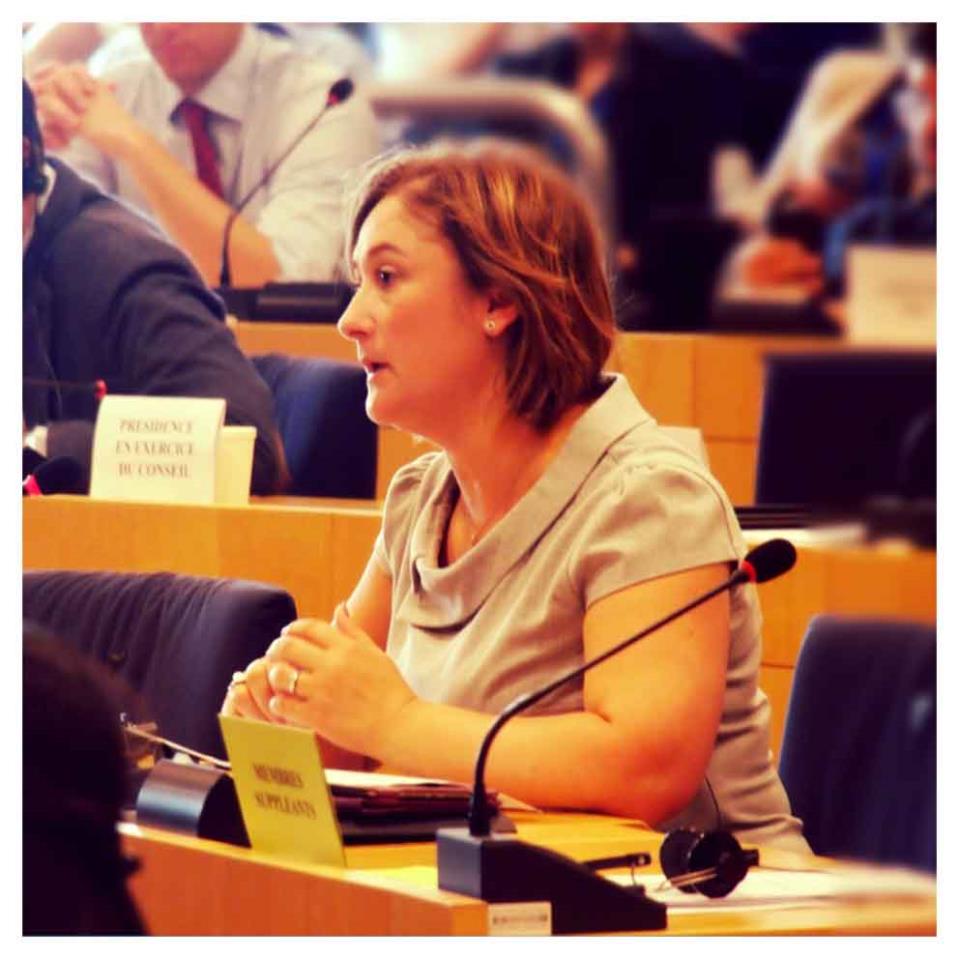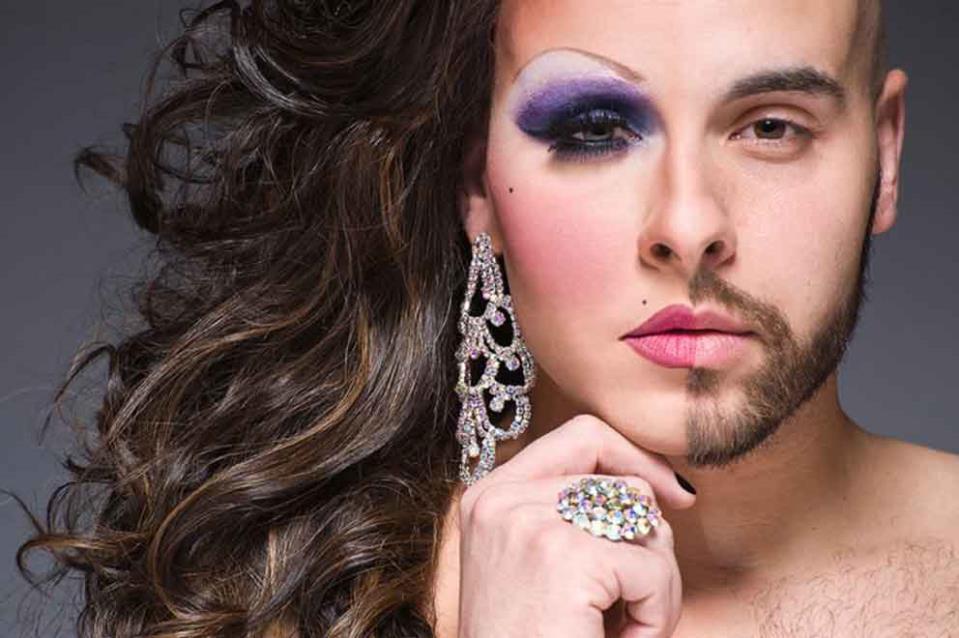The EU's motto is 'Unity and Diversity', says Dr Comodini Cachia. "Yes we are Maltese and Gozitan, however all EU countries come together to pull the same rope. We argue, disagree and negotiate, however at the end of the day if there are problems, help is readily available. I can already hear some people ask 'where is the EU on immigration'. I share the same concern on this issue and I am fighting to get the EU to take some of the immigrants landing on Maltese shores. We cannot forget, however, that in order to return immigrants not granted protection status we require EU funds rather than pay for them entirely."

What if, hypothetically, Malta were to leave the EU?
Malta's foreign relations would be affected. "We will not have a sure ally when dealing with other countries. What about the issue of peace, and actually living the European lifestyle? I'm not saying Malta should be completely taken over by Europe, but we must remember the EU's motto 'Unity and Diversity'".
Dr Comodini Cachia spoke about financial ramifications which could possibly lead to Malta's economy flopping. "All EU-funded projects would no longer exist. On a day-to-day basis, this would mean that EU-financed roadworks, retraining of skills, projects to help youths find employment and student mobility would no longer exist. In addition, we would face social disconnection and would no longer be able to travel as we do now." She also mentioned that Malta would need to depend solely on its own resources. "I believe our best resource is our human resource, however we would really be the tiny island in the middle of the Mediterranean."
How much cooperation exists between Maltese MEPs?
"Cooperation between the two delegations is very good. When there is an important topic that affects people back home, both the EPP and S&D Maltese delegations meet up to discuss. We do each have our own committees however and as such it is hard to meet very regularly." The MEPs do have regular meetings in the airport, she joked.

TTIP and you
The EPP stands in favour of the Transatlantic Trade and Investment Partnership (TTIP), Dr Comodini Cachia said.
"Such an agreement would see economic benefits for EU companies, however the EPP took a decision to go against proposals that would see standards lowered just to allow this agreement to go through. Sensitive negotiations are taking place on this issue mainly through the European Commission," she explained. "We do not feel comfortable compromising EU standards as in a number of situations, like food safety and data protection, our standards are higher."
The question on the minds of many local Maltese citizens is how will SMEs be affected. "During the EP campaign I had raised this issue, however I believe Maltese SMEs can make use of this TTIP agreement to expand their trade. They would need to prepare for this and strengthen their competitiveness. When joining the EU, our SMEs had access to a much wider market and some similar concern was felt back then. I'm proud to say that our businesses rose to the occasion and I am confident they will do so again. There is quite an opening for them here as their market will increase exponentially.
"An interesting possibility would be if Malta identifies a niche market where our SMEs can prosper. The IT industry is one such example where we have a number of qualified people on the islands."
The TTIP has yet to be finalised, however the MEP emphasised that US conglomerates would need to be regulated by EU regulations, such as those relating to mergers. "The EU should not remove any of its protection just to allow US conglomerates in as I believe they should need to follow these regulations to protect the EU market. I doubt anyone in the EU Commission or Parliament would want to harm our market."
Another question being made surrounds legal jurisdiction when disputes occur between consumers and companies in separate continents. The MEP explained that no information has yet been given to the European Parliament by the European Commission on this issue.
Certain comments relating to the secrecy by the EC on the TTIP have been made, however Dr Comodini Cachia said that information on this topic is presented by the EC during EU Parliamentary plenary sessions. "Most of our plenary sessions during this legislature have been taken up by Commission appointments, committee appointments and a number of policy issues. I am looking forward to hearing the new Commission's view on the TTIP."
Dr Comodini Cachia believes that the idea for facilitating import and export of goods within the agreement exists, however
focus seems to be more on trying to facilitate the setting up of business rather than just selling goods across continents.

Gender identity
The conversation then turned to the Gender Identity Bill proposed at home, and the MEP, with her knowledge in human rights law, saw fit to respond.
"Whenever trying to create a piece of legislation that has such social ramifications, I always feel the need to make sure all stakeholders are as protected as possible."
Dr Comodini Cachia has not come to a specific conclusion on the Bill however did express certain concerns. One such concern surrounds the protection of children. "I have read certain arguments stating that the children are not protected and others said that they are protected through other laws. Usually with these kinds of legislation, I try and see all aspects relating to all affected parties. You have society in general, the specific individual who requires the law and their families, as well as professionals involved. Usually a legal act of this sort would have an effect on all these people."
"From what I have been reading, a few people have said there is a lack of protection, while others said that they are protected under other laws (referring to the situation where a child not given a gender at birth must be given one by the age of 14). In specific laws dealing with these sensitive issues, I say sensitive as it is a sensitive issue for the person directly involved, I would probably prefer a protection system within this specific legislation.
"I was speaking with a person who was intersex at birth, however doctors chose to register the person as a man at birth on the basis of a test. It turned out that through psychological development, the person developed into the other sex. It set me thinking on how to protect these children, however this bill doesn't only refer to children born with both sexes, but also refers to people born in the body of the wrong gender. I think we need a better system of protection here, especially since they are still vulnerable minors. They aren't vulnerable because they themselves don't know who they are, but because there are so many people around them who can influence them.
"We need a system that would give objective protection, however I've only had a cursory look at the Bill.
"In my mind a child under 14 can be influenced by those around them. In this situation, where are the professionals to help the 14-year-olds discover themselves? I read an argument in an article stating that the child is protected elsewhere in the law. If one of my clients was a child, and he was under tutorship then what would I need to do... institute proceedings on behalf of the child against his own tutor or parent?"
With regard to allowing a marriage to stand should the wife or husband choose to change gender, Dr Comodini Cachia said: "The government told us 'we have not given same-sex marriage," however this is a way of introducing it. I don't really want to enter the debate of whether it will be a marriage but my largest concern is that we have very restricted grounds upon which one can obtain an annulment. Now are we expecting a judge to decide whether this scenario would fall under any of those grounds and if leaving to judicial decision what ground will it fall under? Will it fall under the ground of marrying someone who isn't the person he represented himself to be? Here, we cannot leave the law so open as I think we will be doing a disservice to the people who will find themselves in this situation."
She noted that the European Union has a charter of fundamental rights that does not distinguish much between same-sex and heterosexual marriage. "But we also follow the case law and abide by judgements of the European Court which has continuously said that at this stage they do not recognise a specific right to marriage in the sense that it does not feel it should impose on respective parties".